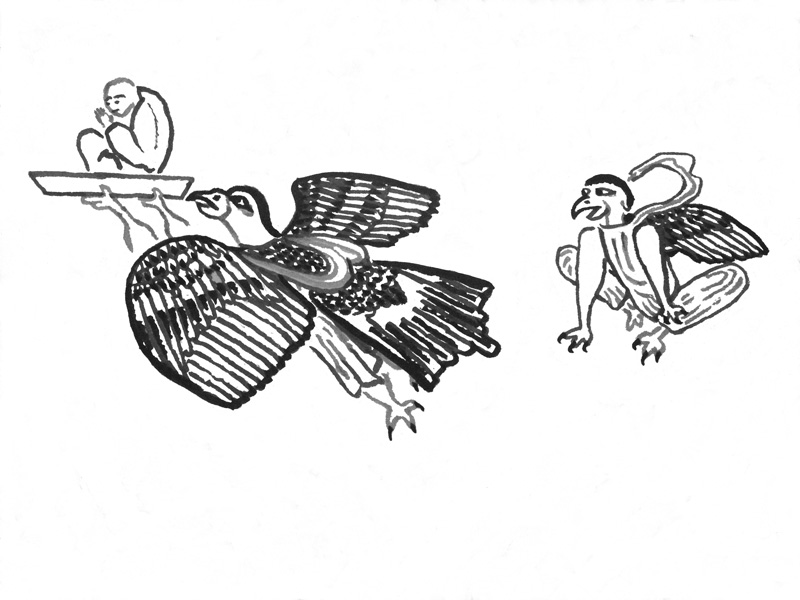Evil and the Rhetoric of Legitimacy in Medieval Japanese Buddhism
by Haruko Wakabayashi
2012
Once upon a time, there lived a holy man on Mount Ibuki of Mino. This man, Sanshu Zenji, knew nothing but the reciting of sūtras and spent years doing so.
One night, when he was reciting a sūtra, he heard a voice from the sky saying “Because you have been so devoted, reciting so many sūtras for me, I will come and fetch you tomorrow at the hour of the sheep[1pm to 3pm].”
The next day, the holy man purified himself, told his pupils to recite a sūtra with him and, facing the West, waited for the coming of the Buddha. At the hour of the sheep, he saw the Amida Buddha, shining in gold, appearing from the mountains in the West. Bodhisattvas were chanting beautiful music, and showers of flowers were falling from the sky. In the midst of purple clouds, Kannon [the bodhisattva of Compassion] appeared and gave the holy man a golden seat. The bodhisattvas took him to the West.

Tengus taking a holy man away (ink on paper), © Denis Wallez
After witnessing this, the pupils who were left behind began to value reciting sūtras even more.
However, seven or eight days later, when a monk went into the mountains, he heard someone shouting from the top of a tree. He looked carefully and saw the holy man, naked, tied to the tree.
When the monk untied him, the holy man said “Why do you do this to me? The Buddha told me to wait here for a bit until he comes back to fetch me!”
The holy man became insane and died after two or three days.
This is the story of a man who, because he lacked wisdom and knowledge, was deceived by a tengu. The condition of Ignorance and cyclical death, and the condition of the Three Jewels, are not the same. Because the holy man lacked wisdom, he could not tell the difference between the two and was therefore deceived.
